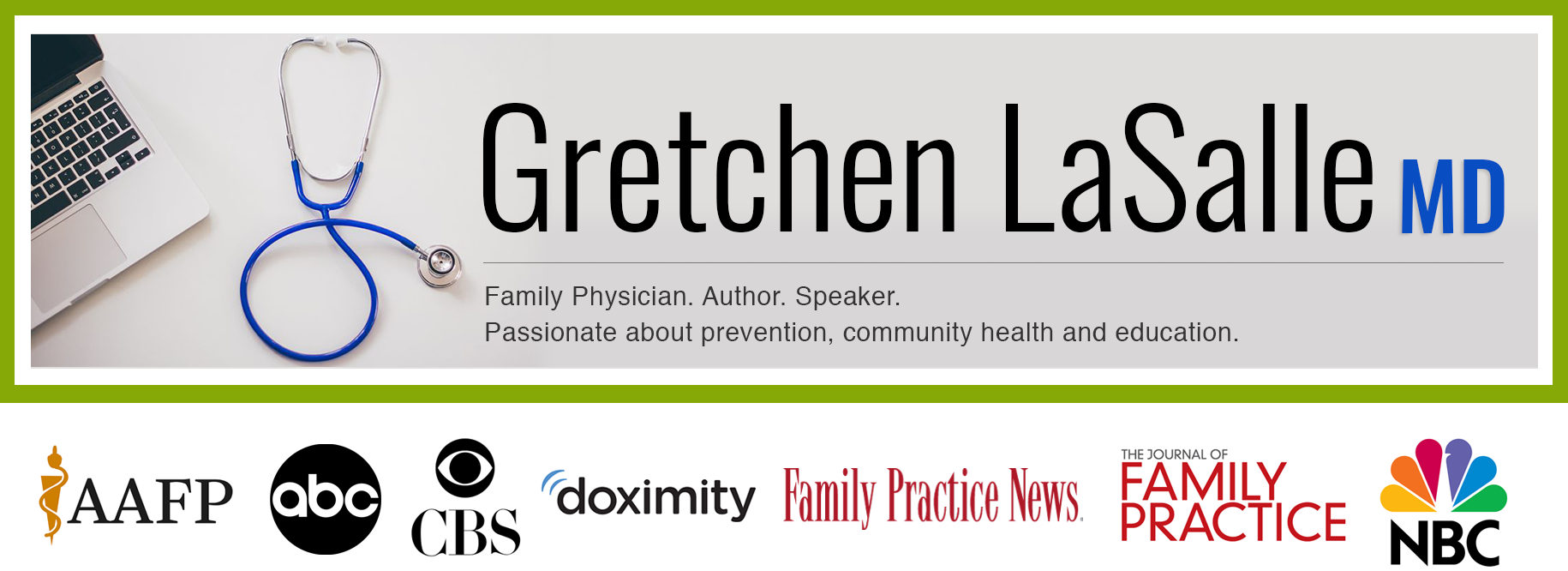In my last blogpost, I discussed the unique relationship that doctors have with their teen patients. I also highlighted the fine line that we (doctors and parents of teens) have to walk between giving teens autonomy and reigning in their “that won’t happen to me” nature when it comes to making healthcare decisions, like the choice to get vaccinated. With this background in mind, following is what parents and teens need to know about “teen vaccines” to help them make informed and healthy choices.
In discussing vaccines, we first need to know that, overall, parents legally have the final say. Until a child is 18, they cannot consent themselves for vaccines (with two notable exceptions). With more press being given to situations like that of Ethan Lindenberger, who chose to get himself vaccinated against his parent’s wishes, this may change. But for now, with the exception of the HPV and Hepatitis B vaccines, a teen has to be at least 18 years old to consent themselves for treatment.
HPV and Hepatitis B vaccines represent an exception to this rule only because these infections can be acquired through sexual activity. Most states have something called a “mature minor” law which states that children (typically over the age of 14) can consent themselves for treatment that relates to sexual and mental health or care related to drug and alcohol use. There are very specific criteria that clinicians have to use to document that a minor is mature enough to make independent decisions about this type of care (see here for Washington State’s Mature Minor Rule requirements).
If the physician feels the teen is competent and mature enough to make this decision, teens can choose to get the HPV and/or hepatitis B vaccine without parental permission. Note, if care is provided to a child under the mature minor rule, parents are not liable for the cost of that care. Each state’s laws may vary slightly. Check your state’s mature minor rules for specifics.
Okay, now that we know where we stand with regards to who can consent for what, let’s dig a little deeper into the individual teen vaccines themselves.
Tetanus, diphtheria, pertussis. Oh my!
Many of us are familiar with the DTaP vaccine that our kids get when they are younger. But when our kids hit pre-adolescence, we now recommend the Tdap which, while working to prevent the same infections, has some notable differences. We will review those differences soon but, first, let’s recall why these infections are worth preventing.
Tetanus causes muscle spasm so severe it can break bones. It results in paralysis which, if affecting the breathing muscles, can cause suffocation and death. Diphtheria causes a membrane to form across the back of the throat which can cause suffocation and death. Pertussis (whooping cough), can cause respiratory failure and death in infants (follow this link to hear what pertussis sounds like). In adults, it causes what is commonly known as the “100 day cough”, a severe coughing illness from which it can take many months to recover. Broken bones, muscle paralysis, respiratory failure, death – bad stuff, right? But largely preventable with vaccines!
The notable difference between the DTaP and the Tdap is the capital or lowercase character of each letter. A capital letter indicates that there is full strength of that vaccine component and the lower case letters indicates lesser strength (or a lower antigen load). With the DTaP, our infants and toddlers who are being introduced to the diphtheria, tetanus, and pertussis vaccine for the first time. To trigger a strong initial immune response, and because infection with these illnesses can be so serious, younger children need the full strength of those individual components.
In our teens and adults, only the full strength of tetanus is present because immunity to tetanus fully wears off over the course of about ten years. Lesser strength diphtheria and pertussis are present in the Tdap. This is because, in later years, we really just need a boost to our immunity. Also, illness with these infections is somewhat less serious in adults than it is in children.
We get our first Tdap at age 11-12 but need a booster every 10 years for the rest of our lives. Yes, adults. That means you also need regular tetanus vaccines. Additionally, we give the Tdap vaccine with every pregnancy to protect that little nugget who can’t be vaccinated themselves until they are a bit older. Remember, pertussis in infants can be deadly.
Meningococcemia – a terrifying disease
Meningococcal infection is horrific. It most easily spreads in close quarters like college dormitories and military barracks. This is why we recommend completion of the vaccine series for all students before college and military entry. Meningococcal infection can cause a brain inflammation (meningitis) which can lead to seizures, permanent brain damage, hearing loss, and death. It can cause a blood infection (septicemia) which can result in organ failure, loss of limbs, and death. Did you catch that? Death. Even though we don’t see it as commonly as, say, the flu, meningococcal infection is very serious. Even with proper medical care, 10-15% of people who contract the illness will die. Many others will suffer permanent health consequences.
There are two types of meningococcal vaccines, Men-ACWY and Men-B. Currently, only Men-ACWY is universally recommended for teens. Men-B is optional for most teens between the ages of 16-18 but is encouraged for certain higher risk groups and during outbreaks. We give our first Men-ACWY vaccine at age 11 and a booster at age 16, or 5 years later.
HPV and the big “C”
Finally, we strongly encourage our teens to get the HPV vaccine at 11-12 years of age. This vaccine helps prevent infection with 9 strains of human papillomavirus. HPV infection is the leading cause of cervical, vaginal, vulvar, rectal, penile, mouth, and throat cancers and genital warts. The HPV vaccine is one of our only cancer prevention vaccines. Cancer – the big “C” – and we can prevent it! Discussion of this vaccine is a little more cumbersome for a variety of reasons (see my blogpost, HPV Vaccine 101, for more details). But, the short version is…
- The discussion of the sexual activity, or future sexual activity, of our children makes us uncomfortable. But… it’s gonna happen. Shouldn’t we prepare our kids and help keep them safe?
- We are under the false assumption that safe sexual practices can completely prevent this infection and its resulting cancers. Limiting partners is great and use of condoms is absolutely important. But you can get HPV the very first time you have sex. No high risk activity is required. Nearly all of us will come into contact with it at some point in our sexual lives. And, sometimes, it takes only skin to skin contact to spread the virus.
- We worry that giving kids a vaccine against a “sexually transmitted infection” will encourage earlier sexual activity. Turns out, it doesn’t! In studies, sexual practices in kids who received the vaccine were no riskier, and were sometimes safer, than kids who did not get the vaccine.
- We think that 11-12 is too young to be giving the vaccine. Shouldn’t we wait until kids are older? When we give this vaccine at a younger age, kids develop a stronger immune response. That means better protection. And this is a prevention vaccine. It works best to give it before sexual activity begins. It does nothing to treat an HPV infection, once acquired.
- We are nervous about it because it is one of the “newer” vaccines on the market. In reality, the HPV vaccine has been out since 2006 (that’s 13 years), so it’s not that new anymore. And before that, it underwent the usual rigorous testing that all vaccines undergo (taking an average of 10-15 years).
- It was originally only recommended for girls but, since 2011, is also recommended for boys. However, the misconception that this vaccine is not for boys still exists. Boys need this vaccine, too! Boys can get penile, rectal, mouth and throat cancers and genital warts and can pass the virus to their sexual partners.
- We have heard all sorts of fake news and fear mongering about the HPV vaccine on the Internet. NONE of this has proven true.
- The truth is that the HPV vaccine is safe and effective! Countries like Australia have shown drastic reductions in incidence of HPV infection, genital warts, and pre-cancers since the introduction of national HPV vaccination programs. We, in the US, need to get in gear.
The data shows that we lag behind our goals for vaccination with all three teen vaccines, but especially for HPV vaccination. Some of this is because it is not always easy to get our teens and pre-teens in the door. There’s a power dynamic that plays into vaccine decisions at this age, as well. Who makes the decisions – teens or parents? And some of it has to do with the fact that vaccination at this age begins to bring up adult issues, like sexual health, which make parents nervous. But if we don’t stay on top of wellness visits that teens continue to need, and the teen vaccines that can prevent serious diseases and cancers, then we do our kids a grave disservice.
So, let’s get our teens their yearly checkups. Ask their clinician what vaccines they might be do for. And encourage kids to start thinking about prevention as the key to a healthy future.
March 4, 2018 was the 1st International HPV Awareness Day!
For more excellent information about HPV and the HPV vaccine, go to askabouthpv.org and verywellhealth.com


This is SO IMPORTANT! We HAVE to keep talking about vaccines and how they SAVE LIVES. Thank you so much for addressing this topic!
Thank you for sharing this important information and spreading this evidenced-based information to protect our teens.